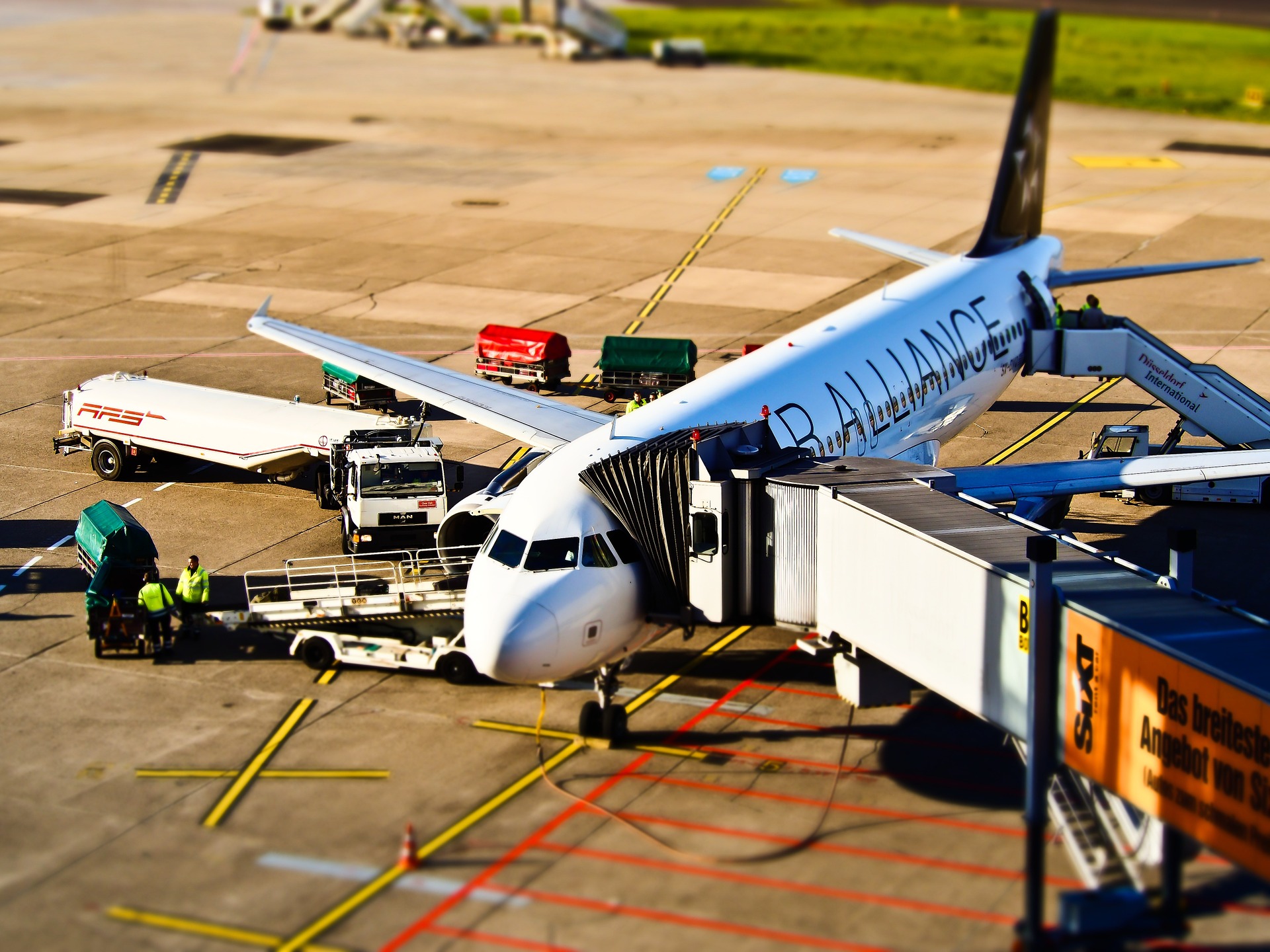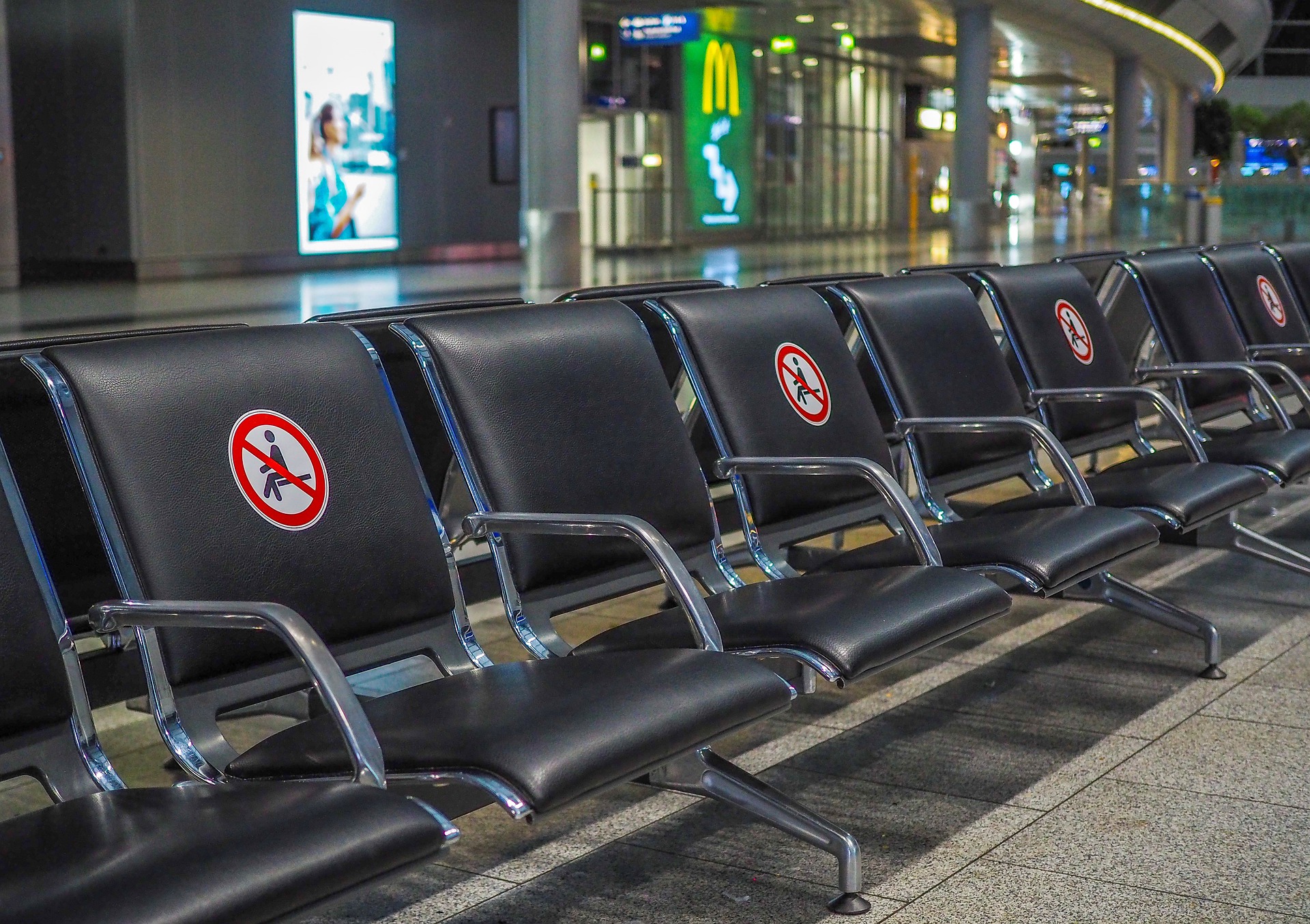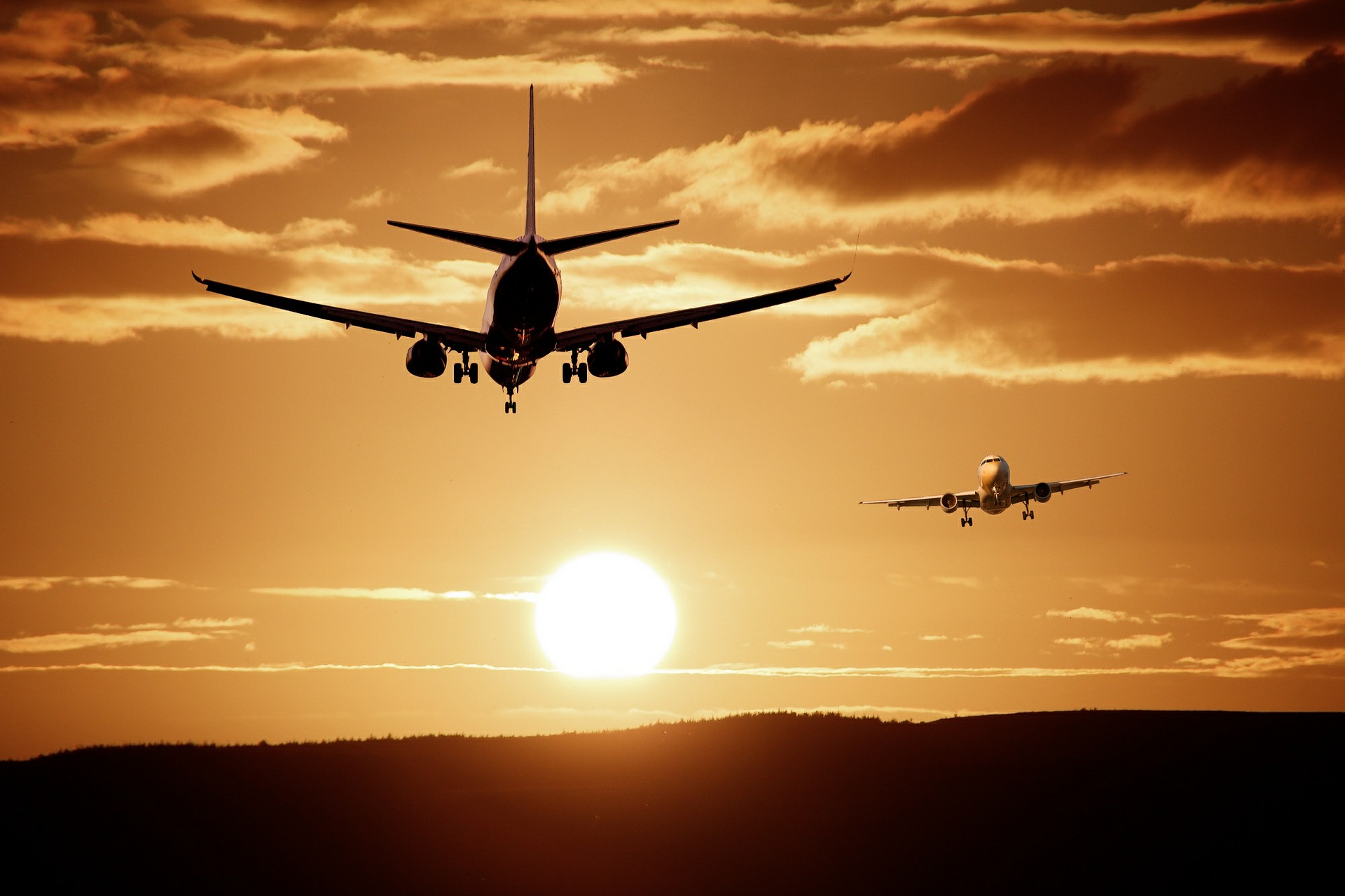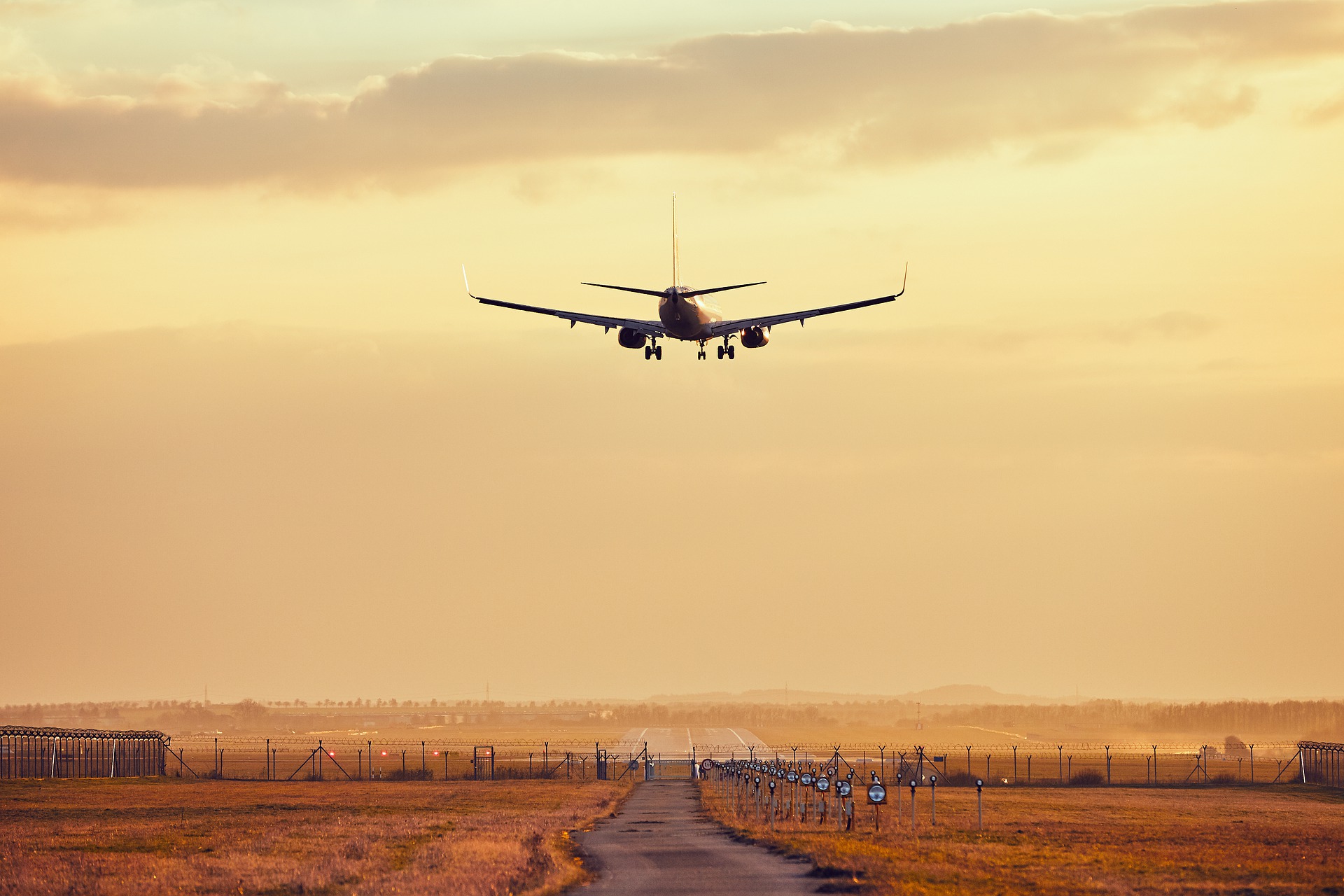Note: At the time of publication, non-essential travel is not recommended or encouraged. When conditions allow, use this guide to help you plan future travel.
Guidelines are subject to change without notice. Check with your local authorities before booking.
Have you heard it? Planes are flying overhead again, though nothing like the Before Times. While the country remains in essential-travel-only mode (and a reminder – holidays are not essential), Canadians are lining up to get vaccinated and many are curious about how and when they’ll get to travel and fly again. When conditions permit, here’s what you need to know to plan for domestic and international air travel.

Airline protocols
Health and safety protocols remain critically important in the air. Airlines and airports are invested in making sure that passenger safety is key and that air travel is as safe as possible.
Masking at the airport, on a plane and in transit in airports, and in groups is mandatory. Only children under 2 years old and those who have a medical certificate are exempt from wearing masks.
Anyone who has symptoms of Covid-19 or been refused boarding within 14 days for Covid-related reasons will not be allowed to board their flight.
Canadian airlines like Air Canada, Westjet and Sunwing have incorporated a higher standard of cleanliness onboard the plane and between flights. You can find full Covid-19 safety protocols on each airline’s website.
Planes have sophisticated air circulation and HEPA filter systems to ensure a high level of clean air quality. About 40% of a cabin’s air is filtered through the plane’s HEPA systems, while the remaining 60% comes in fresh, piped in from outside the plane.
If you need to cancel previously made plans, airlines have worked with the federal government to provide refunds or vouchers for future travel bookings. If you have issues, the Air Passenger Rights organization may be able to help.

Flying within Canada
For domestic travel, Canadians are not required to provide negative Covid tests for air travel. With the decline in air travel over the year, many flights and destinations have been reduced or eliminated. It may be more expensive and more difficult to get where you wish to go, so plan carefully. Have a Plan B in case you miss a connection and are delayed by the reduced frequency of flights.
Food and beverage services have been reduced or eliminated on many domestic flights. Eat beforehand and pack your own water bottle to fill at the airport.
Before you book, check that you can actually travel to your destination. Many provinces are restricting entry to non-residents to keep Covid-19 transmission levels in check.
While the Atlantic bubble of the four Maritime provinces led to a successful summer travel season in 2020 for residents of those regions, other Canadians were barred from visiting for leisure travel. The Atlantic provinces have not yet announced plans for a 2021 travel bubble protocol, but several of them are off-limits to non-residents as of spring 2021.
British Columbia has put some inter-regional travel restrictions in place until the end of May, and other provinces have instituted travel restrictions this spring.
For the latest domestic travel updates, visit https://travel.gc.ca/travel-covid/travel-restrictions/provinces

International air travel
International travel from Canada is not recommended at this time. If you must travel for essential reasons, your destination country will have rules that you must follow upon entry.
There may be necessary quarantines upon arrival in some jurisdictions, similar to the 14-day quarantine (which includes a government-mandated 3-night hotel stay) that is required upon re-entry to Canada.
Anyone entering Canada – including Canadian citizens – must be tested no more than 72 hours (3 days) before flying and present a negative test result before boarding.
For other countries, similar testing rules will apply. At the time of publication, (May 2021), 80 countries are open for visitors from Canada. Each country has its own government regulations and individual health authority protocols on how incoming travellers will be treated upon arrival.
For the United States, Canadian air travellers must provide proof of a negative coronavirus test 72 hours before departure. The United Kingdom requires both a negative COVID PCR test and a 14-day quarantine period upon arrival. Others like Mexico and some Caribbean countries have few restrictions, apart from temperature screenings upon entry.
For families with children, international travel may present particular challenges, as adults may be vaccinated while children under 12 years of age are not yet eligible for vaccinations and may be at risk. Parents may wish to proceed with caution when booking travel outside of Canada. Purchasing trip cancellation and health insurance coverage, including riders for Covid-19-related health coverage, is recommended.
To find the latest testing rules and entry requirements for other countries, visit CovidControls.co.

Will you need a vaccine passport?
The Federal Government is looking at the likely development of a vaccine passport that hold certificates and proof of a traveller’s vaccination status. Other countries like Israel with its Green Pass and the European Union with its Digital Green Certificate program have implemented such programs for their citizens. However, there is no universal standard of proof yet established for crossing international borders.
In the US, the Centers for Disease Control and Prevention (CDC) has indicated that fully vaccinated people can safely engage in many activities, including travel. While this measure has not yet been taken in Canada for fully vaccinated Canadian citizens, the federal government is currently working on similar travel guidelines.
Travel will be safer for those who have been vaccinated and whose bodies have developed antibodies to Covid-19. How long immunity lasts post-vaccination remains an unknown, and this will be a going concern for governments, scientists and travellers as we navigate our way forward from the pandemic.
Plan travel carefully
Restrictions, rules, and processes can change with little or no notice. Expect the unexpected. Check with your airline, airport, and country of travel before departure and during your trip in case situations change. This is your responsibility. Your airline may notify you of changes, but ultimately travellers are responsible for this. A travel agent would be a helpful resource to keep track of these changes or to help if things go wrong.
Provincial health orders and efforts to slow the spread of Covid-19 will determine the nature of how and where Canadians can travel this summer. As conditions permit, be sure to explore and support local, discover your own or a neighbouring province and keep to recommended health guidelines and travel restrictions.
This summer is an opportunity to enjoy a Summer of Canada 2.0. Make the most of soaking up the splendor and beauty of our home, without having to share it with everyone else.




